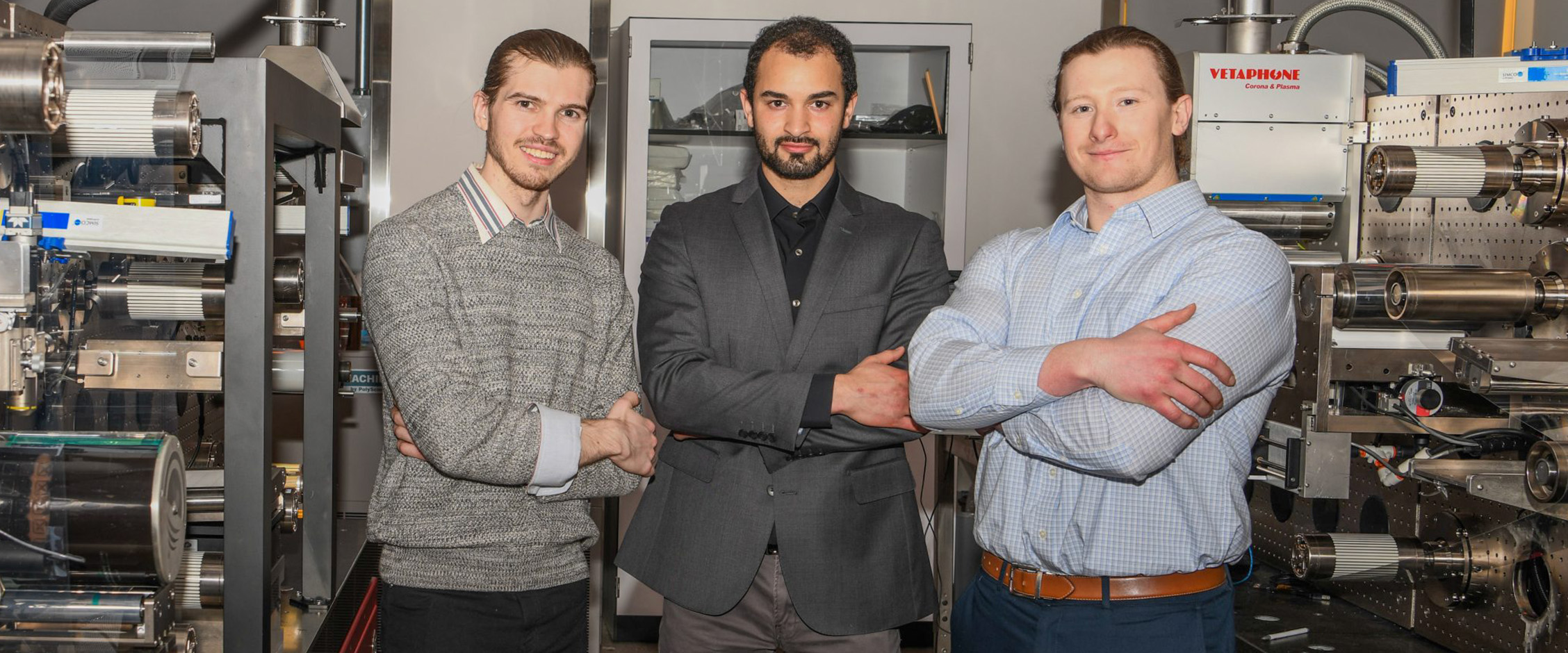Jose LaSalle was raised with the “seventh generational principle,” a tradition passed down by his great grandmother that teaches gratitude for the opportunities and prosperity bestowed by the previous seven generations and to live in a way that contributes to the well-being of the seven generations to come.
“We have a duty and responsibility to be respectful to our relatives and the life around us. If we can be part of providing and building a stronger platform for the next generations to build upon, then that is a life well lived,” he said.
LaSalle, whose ancestry is Black and Indigenous, primarily Chamorro, channeled his sense of purpose and love for invention and building into co-founding florrent, an Amherst-based startup developing next-generation ultracapacitors for grid-scale renewable energy. Ultracapacitors complement batteries in energy storage systems by offering quick release of energy for power consumption spikes, such as for electric-vehicle charging.
LaSalle chose renewable energy as the place to channel his passions when his parents fell on hard times and couldn’t pay their utility bills. “I couldn’t turn the stove on, take a hot shower, or connect to the internet to do my homework,” he recalled. “That really was a turning point in my life.”
Delving into the energy world as an engineering student at the University of Massachusetts Amherst, LaSalle learned the importance of energy storage for the energy transition and homed in on ultracapacitors. “I wanted to find ways to make higher performance and more affordable ultracapacitors to help enable the energy transition,” he said, including on “the equitable sourcing side.”
Ultracapacitors require activated carbon, which is typically provided by coconut husks or petroleum byproducts, each of which have sustainability problems. But florrent makes its ultracapacitors with hemp grown by Black and Indigenous farmers in the U.S. Hemp sequesters carbon, and when converted to carbon with florrent’s activation method, creates a higher performance ultracapacitor with a lower price per unit energy. LaSalle was inspired to experiment with hemp because of his family’s roots in Louisiana, where farming and food has become a means for sovereignty after slavery.
“I wanted to find a route to economic growth and wealth into the communities that my family comes from as well as create more resilient and less vulnerable systems within local communities,” he said.
If florrent’s tech is deployed at scale, LaSalle says it can enable the abatement of 1.5 gigatons of carbon by 2050 and sequester 2.2 megatons of carbon in the same period.
florrent received a Massachusetts Clean Energy Center DICES award in 2022, which has supported the team’s research and development work as well as the production of its first commercial ready prototypes which it will provide to its visionary customers, who include grid asset developers (builders of renewable energy systems) and ultracapacitor manufacturers.
“We’re making great progress in the lab supported by these funds,” LaSalle said. “One example is we’ve been able to produce more of our repeatable lab scale prototypes and get those in the hands of third-party validators to verify that [our product] is performing to spec. It’s an exciting new milestone that has occurred since we received the DICES grant.” The startup has since raised venture capital in a pre-seed round and expects to have commercial products by mid-2025.
Looking to the future, LaSalle envisions large-scale production of florrent’s activated carbon material and cylindrical cells and is especially interested in deploying projects that enable decarbonization and electrification in environmental justice communities.
“We have connections with tribes that intend to go fully energy sovereign to deploy renewables and energy storage. It will be a beautiful vision realized if our technologies landed in the communities that needed the energy systems most.”
The MassCEC Catalyst and Diversity in Cleantech Early-Stage Grant programs, co-managed with MassVentures, are open for applications now through October 27th. The programs offer prototype development grants of up to $75K, including grants for eligible certified woman-and minority-owned early-stage companies.
You can also read the full article here.


